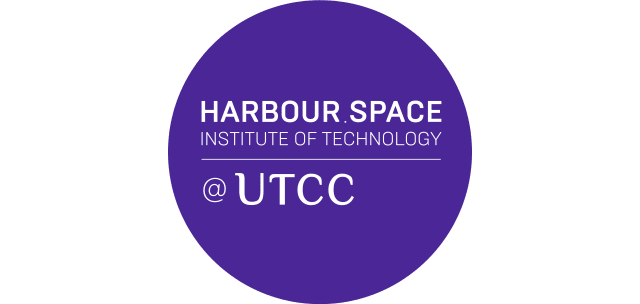MSc Computer Science
Din Daeng, Thailand
MSc
DURATION
1 year
LANGUAGES
English
PACE
Full time
APPLICATION DEADLINE
EARLIEST START DATE
Feb 2026
TUITION FEES
EUR 22,900 / per year *

STUDY FORMAT
On-Campus
* Spanish & Thai Citizens: 11.450 EUR | internationals: 22.900 EUR
Key Summary
The MSc programme is designed for those who desire to deepen their comprehension of all aspects of the computer sciences. Applicants could be graduates from other degrees with a strong mathematical core, or those continuing their academic pursuit after achieving a BSc in computer science.
The programme is heavily geared towards developing students’ professional skills needed for employment, while being able to adapt to rapidly changing technology, to work effectively, professionally and ethically in computing-related professions, as demonstrated by their communications, teamwork and leadership skills. It also motivates and engages students in life-long learning, including entering graduate programmes in Computer Science and related fields.
Partnership & Accreditation
Students enrolled in Master's programmes at Harbour.Space University have the opportunity to receive an accredited degree from the University of the Thai Chamber of Commerce (UTCC) in Bangkok, Thailand. Benefit from Harbour.Space University's long-term partnership with this reputable and dynamic university in Asia.
Barcelona Campus
We also have a campus in Barcelona, if you want to know more, please visit the profile.
Two types of Scholarships
- Work and Study: Combining education with hands-on industry experience to prepare students for successful careers.
- Excellence & Equity: Empowering diverse and high-achieving students to reach their full potential through dedicated financial support.
Scholarship amount
Scholarships range from 5% to 100%, customized to match your potential and needs. When you receive 50% or more, you become a Co-Creator, playing a vital role in our community by contributing as a teaching assistant or through part-time work. Co-Creators are the backbone of Harbour.Space, helping to shape the future while receiving significant support for their education.
How to apply
Students are automatically considered for the Excellence & Equity Scholarships when they apply to Harbour.Space. No extra steps are required.
1 Pillar
Students begin the programme already having foundational knowledge of programming and mathematics including data structures and algorithms, statistics and machine learning. Within the first pillar of the programme their knowledge of mathematics, programming and data analysis will be significantly extended. The programme also offers opportunity to learn the key soft skills for the professional world including technical project management, writing and presenting.
Topics
- Combinatorics and Graph Theory
- Object-Oriented Programming (C++)
- Data Structures and Algorithms
- Functional Programming
- Theory of Probability and Statistics
- Practical Unix
- Introduction to Interaction Design
- Advanced Databases
- Master's Machine Learning
- Python
- Networks
- Java Programming
- Operating Systems
- R
- Robotics
- Leadership and Group Dynamics
- Technical Writing and Presenting
- Сomplexity Theory
- Technical Project Management
- Bioinformatics
- Statistical Data Analysis
- Capstone Project-1
- Seminars & Workshops-1
2 Pillar
Within the second pillar of the programme students will primarily focus on learning key applications of the computer science as well as advanced methods in programming. A significant part of the study will be allocated to the completion of the capstone project.
Topics
- Parallel and Disrtibuted Computing
- Automata Theory, Languages, and Computation
- Software Design
- Foundations of Cryptography
- Computer Vision
- Computational Geometry
- Compilers
- Software Engineering
- Neural Networks and Deep Learning
- Discrete Optimization
- Virtualization and Java VM
- Nonlinear Optimization
- Computer Graphics
- Information Technology Management
- Big Data Analysis
- Information Theory
- Mobile Application Development
- Software Testing, Verification and Validation
- Data Visualization
- Algorithms in Bioinformatics
- Spectral Graph Analysis and Data Science Applications
- Capstone Project-2
- Seminars & Workshops-2
- Junior Software Engineer: s part of the development team, junior software engineers learn to apply the knowledge in Computer Science obtained at the university to practical problems at the workplace. While handling entry-level tasks, junior software engineer quickly builds up the experience necessary for taking on more responsibility at the next step of the career ladder.
- Software Engineer: Software engineer takes on the responsibility for the development of efficient and accurate software. The key knowledge and skills at this level include a deep understanding of the key programming concepts, software development experience, attention to detail, and focus on quality and performance. The bulk of software is developed at this level.
- Senior Software Engineer: The senior developer is an expert in software engineering best practices and the force driving software quality. At this level, the engineer also takes on coaching and mentoring responsibilities to help other members of the team reach their highest potential.
- Systems Architect: As a guru of a technical team, the systems architect possesses a deep understanding of programming and computer science in general as well as a strategic vision of the technical evolution of the software product. The systems architect brings in the expertise in system design and the modelling skills as well as knowledge of technical frameworks and components. It is also often the responsibility of the systems architect to develop the technical component of the requirements specification to ensure a consistent and coherent software product.
- Director of Development: As a leader of the engineering team, the director of development orchestrates the range of talent and abilities the team members possess to ensure the timely and efficient development of software product. Director of development succeeds by understanding the business requirements, mastering technical project management, learning to accurately estimate work effort, and demonstrating first-grade team leadership.
- Chief Technology Officer: Chief technology officer is a business leader with a big picture view of every aspect of the technological side of the organisation. The CTO understands the current state of business as well as the target benchmarks and is responsible for enrolling technology to advance business in the right direction. The responsibilities of the CTO often include leading the development, information technologies, support, technical operations, and infrastructure departments.


